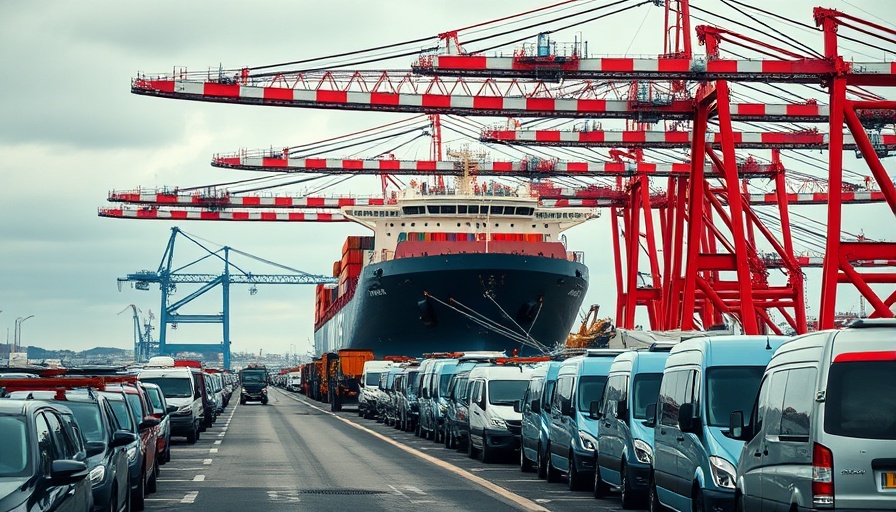
The Rising Costs Impacting European and Asian Carmakers
In recent months, European and Asian automobile manufacturers are struggling with elevated shipping expenses to the United States, exacerbated by existing tariffs. These factors are combining to create a financial burden that may hinder carmakers' competitiveness in the American market.
Understanding the Shift in Shipping Dynamics
The transportation of automobiles across oceans has always been a logistical challenge, but the recent hikes in shipping costs due to global inflation and supply chain disruptions represent a significant concern for international manufacturers. According to industry experts, these heightened logistics costs are translating into price increases for consumers, which could slow down car sales.
Impact of Tariffs on Global Trade
Tariffs imposed on imported vehicles have added layers of complexity to international trade relations. The U.S. tariffs on various foreign-imported vehicles and parts can reach up to 25%, which not only impacts price point but also the overall sales strategy for carmakers based in Europe and Asia. These added expenses force companies to reconsider their pricing models and operational strategies.
The Market's Response and Future Trends
As these challenges mount, car manufacturers are seeking innovative solutions to mitigate costs. This has led to increased investment in local production facilities within the U.S. for companies like BMW, Toyota, and Volkswagen. The long-term strategy could entail a shift towards more domestically produced vehicles to sidestep tariffs and reduce reliance on international shipping.
Understanding Economic Principles Behind Shipping Costs
Shipping costs affect not just car buyers but the broader economy. The rise in shipping expenses can squeeze margins for automakers, impacting their ability to innovate, invest in sustainability, and maintain competitive pricing. If costs continue to rise without corresponding increases in sales, manufacturers may need to cut back on production, affecting jobs and economic growth in supplying countries.
Sustainability in the Automotive Industry
In the face of economic hurdles, many automakers are also prioritizing sustainability in their business models. As the pressure mounts for companies to lower their carbon footprints, some are investing in electric vehicle (EV) technology and localized supply chains to minimize transportation emissions and costs. This dual focus on profitability and sustainability could reshape the automotive landscape in the long run.
Consequences for Consumers and Local Businesses
As shipping costs and tariffs continue to affect pricing, consumers could face higher prices for new vehicles. This situation puts pressure on local dealerships and related businesses in the Bay Area and elsewhere, where a rise in vehicle prices may decrease demand. Additionally, the resulting uncertainty in the market can complicate financing options for consumers looking to purchase vehicles.
Conclusion: Navigating the Challenges Ahead
In summary, the automotive industry is at a crossroads due to these intertwined challenges of high shipping costs and tariffs. European and Asian carmakers are at risk of losing market share if they cannot manage these financial pressures. As the industry adapts to these new realities, the focus on innovation, sustainability, and local production will likely grow stronger. For local businesses and consumers, staying informed about industry trends is crucial as it can influence purchasing decisions and business strategies. To stay ahead in this changing market landscape, businesses should remain vigilant and flexible in their response to these evolving economic conditions.
 Add Row
Add Row  Add
Add 



Write A Comment